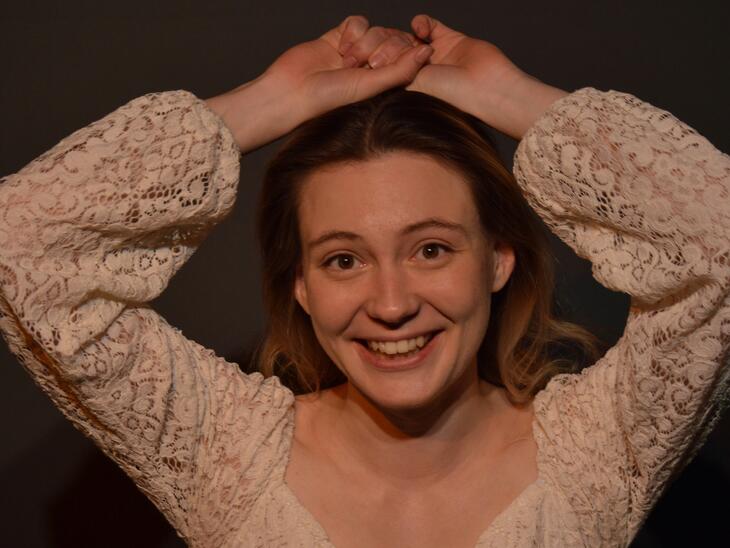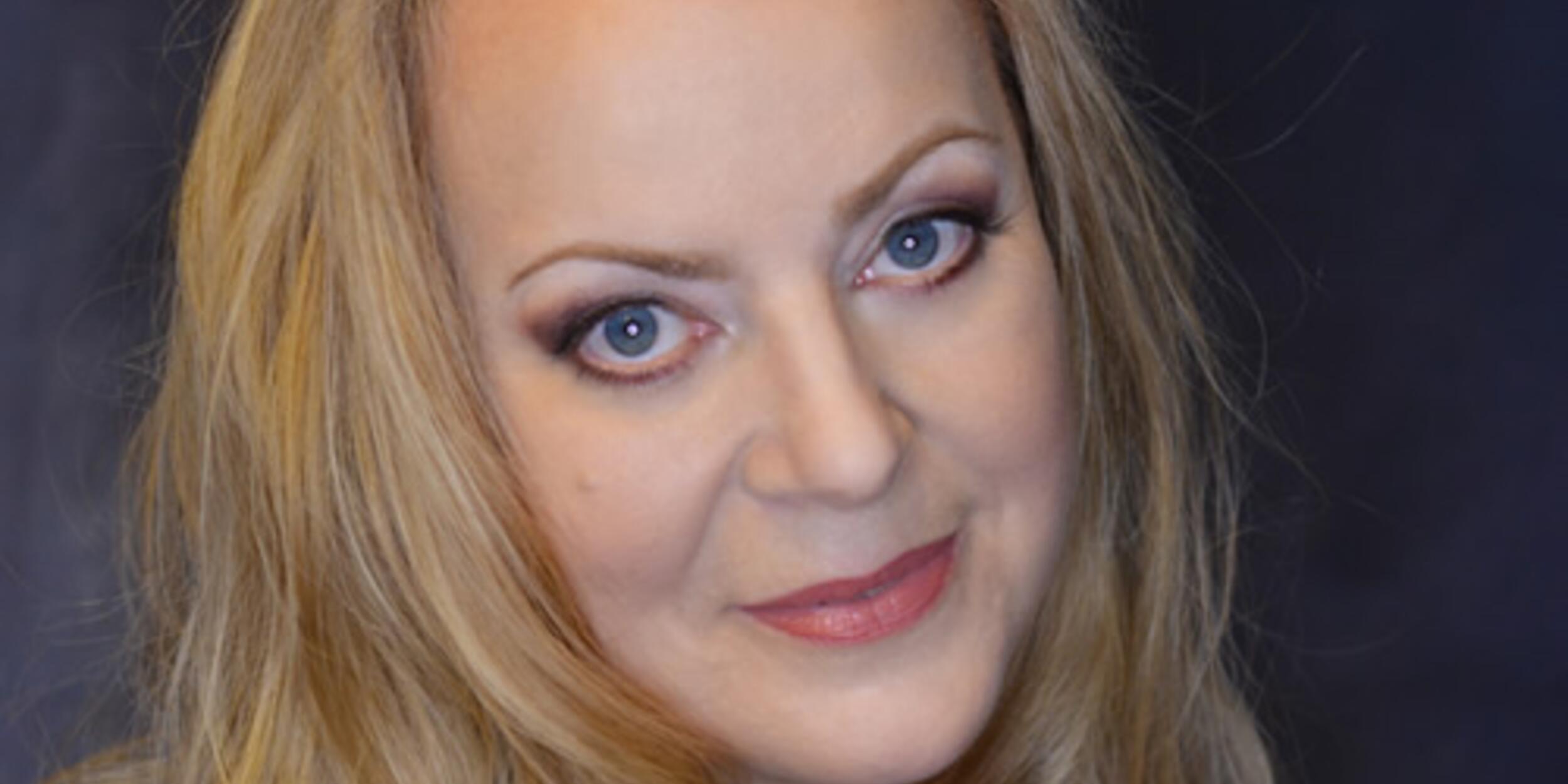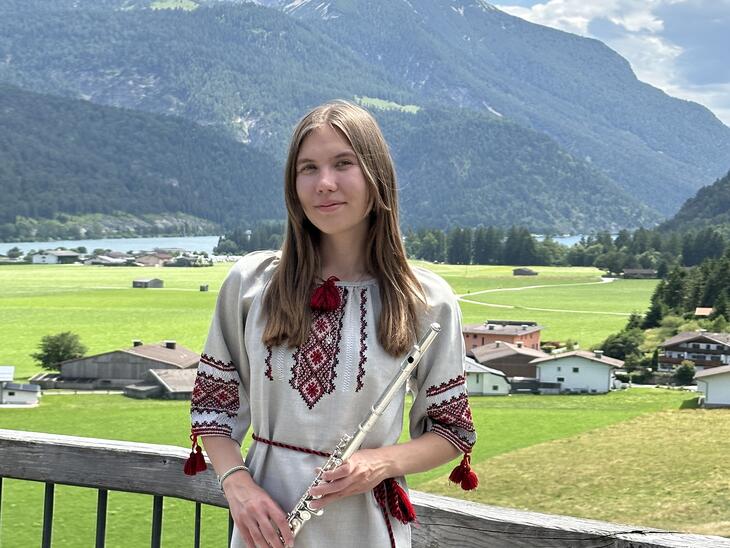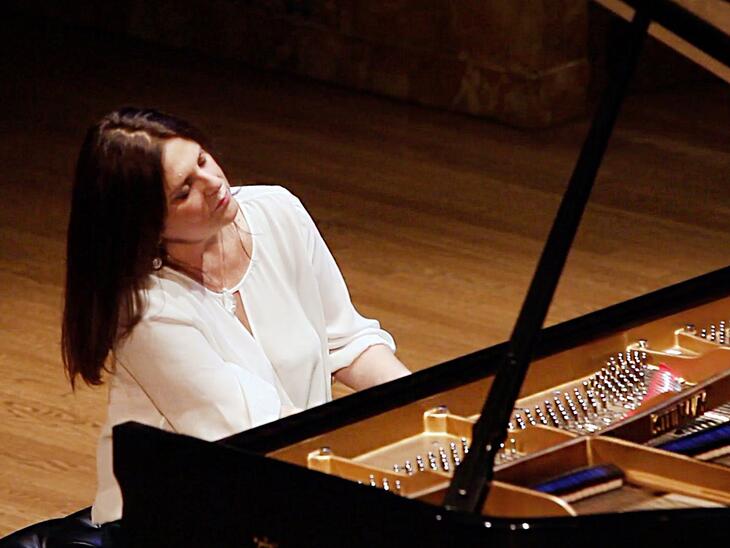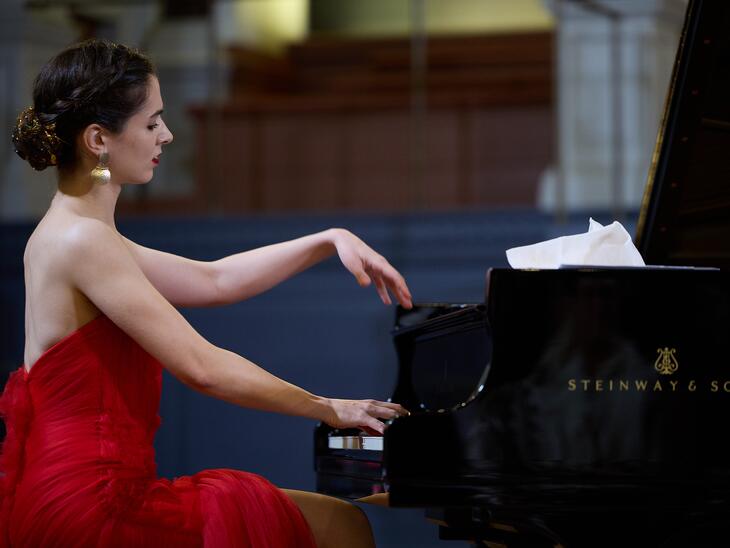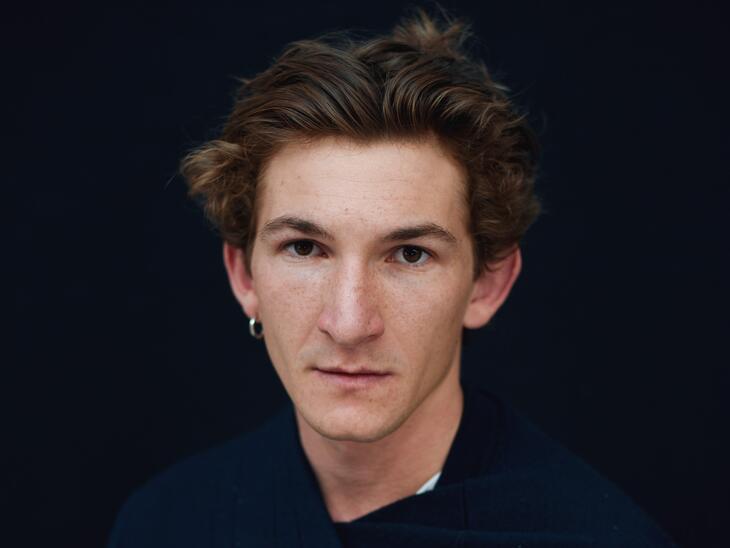How did you experience the Corona period as an artist?
It's a huge slump and a catastrophic situation for all artists. It's true that a lot is offered on the Internet, i.e. virtual exhibitions of museums, or streaming services of opera houses, such as the Vienna State Opera. But for the artists who are used to being on stage, the situation is catastrophic. It's difficult for everyone when you're not allowed to sing because you're banned from performing, so to speak, for the safety of your own health, but of course also for that of the audience. But the worst affected are the freelance artists. I have a number of friends who work on a permanent basis and who are lucky enough to have a secure system in Germany's theaters. The houses are subsidized by the state and get their budget even if they don't play. This means that the artists receive their salaries even if they are not allowed to perform. Only a few soloists are affected by short-time work. But it is above all the choirs and orchestras, the backstage staff and all the workshops that are affected. They not only work a few hours before and during the performance, but also produce wigs, masks, costumes, stage sets and so on. They are all attached to us. When there are no performances, these employees are just as affected. Also the administration, the operations office, the hall service. You can't even imagine that. It's like an iceberg, where the tip of the iceberg is the artist who is on stage and everyone else is literally invisible. Many colleagues are not financially secure. It takes a long time to get to the point where you can make a living as a soloist in the profession. There is a large supply of well-trained singers and very little demand for vacancies. The positive side of corona time is that you can focus. I use the time to prepare myself. Of course, I have already been in this profession for twenty years. At the beginning of my career, I spent three years in a permanent engagement in St. Gallen in Switzerland and then four years at the Badisches Staatstheater in Karlsruhe. That's where my career in Wagner began, and since then I've been traveling internationally, singing all the Wagner heroines at the major houses. I only decided to go freelance because I had so many offers in addition to my main roles in the first subject in Karlsruhe that I could no longer reconcile it with a permanent engagement.
Is it more advantageous as a singer at the beginning of a career to go to a fixed house and only later to work as a freelance artist in order to have more creative freedom?
I think so. But it always depends on the individual type. Being in a fixed ensemble means real back-breaking work. You have to serve several roles at the same time. In some circumstances in different styles and languages. In my first engagement, I played 72 evenings in one year. Of these, five different opera productions, one operetta and one children's play, i.e. from small parts, so-called "wurzen", to medium to title roles. This means that for weeks you don't have a day off and sometimes you have to get up very early because, for example, you have to travel overland in a theater bus to perform a children's play at a school in the morning and you are responsible for make-up and costumes, as well as carrying the stage set. On the same evening, you perform grand opera in the theater. Those are the beginnings, you are not spared. It is also common that after an opera premiere on Saturday, on the following Monday the rehearsals for the next piece begin, that you rehearse one piece in the morning, but sing the performance of another in the evening. For me it was a very important time because I learned a lot. The university can only partially prepare you for professional life. It's like always: no matter which degree you graduate from, when you go into professional life, the world looks very different for the moment. It is only when you get to grips with the tools that you can more easily understand and implement what you have learned before. In a way, the university is already a microcosm.
You came to St. Gallen directly from the university. How did this step work? Did you have to do a lot of auditions?
Basically, you need the talent, the diligence, the quality, but also a lot of luck. In the curriculum vitae it looks so straightforward and simple, but that's not true. I already did some productions as a freelance singer during my studies. During my studies I was lucky enough to be allowed to audition for the Prague State Opera. I did that just to get some audition practice and then I was invited for a production. My opera diploma was in June and from August I was in Prague for rehearsals of Freischütz. I didn't have an agency at the time and had to negotiate everything myself. You also have to be able to take the pressure. I was very appealing as Agathe, and I was offered an engagement for a year. I was flattered, of course, and wanted to know what roles I would have to sing. They were Agathe in "Freischütz", First Lady and Pamina alternately in "Die Zauberflöte", Rosalinde in "Die Fledermaus", Donna Elvira in "Don Giovanni", Elisabetta in "Don Carlos" and Tosca as well as the Princess in Zemlinsky's "Es war einmal … ". It is important to know that the Princess in Zemlisnky's opera is a dramatic soprano in the German repertoire and Elisabetta and Tosca in the Italian repertoire. I already knew then that these roles were definitely too early for me. I told the Intendant that I would not be able to sing the eight roles in one year and suggested that I take on four roles, without the dramatic part. The director then said that I had the voice and could sing the languages. Either all eight or the offer would be over. With a heavy heart I declined. The risk to my voice was too great. Probably also with a certain youthful naiveté and the thinking "well, then just not, I don't care". So I was left on the street for the time being. I had no agency and no theater. Then I did my postgraduate studies at the Mozarteum and spent a year expanding my repertoire of songs with Wolfgang Holzmair. For which I was very grateful. Then I was fortunate that my younger sister Ulrike Haller graduated in piano in Vienna with a song program that we worked on together with our teachers Johannes Kutrowatz and Wolfgang Holzmair. In addition, I auditioned with agencies and theaters and finally found an Italian agency that got me a first engagement as Euridice in Gluck`s Orfeo and later as Alice Ford in Falstaff in productions in Italy. The fees enabled me to keep my head above water and, of course, to finance further auditions. I then had to hear again and again that I was indeed a youthful dramatic soprano with a beautiful voice, but still too young for the subject. Until, on one such occasion, my patience snapped and I asked an agent if I should wait until I was 35 and then say, hurray, here I am, and if he wouldn't then ask me what I had sung so far. It's a very hard road, but you can't get discouraged, you have to keep pushing yourself and believe in success. It takes a lot of passion for this vocation. After all, it's not just a profession. During the year between Prague and St. Gallen, I doubted so often and thought that the decision not to sing the eight roles in Prague was wrong. Today, of course, I can smile about it. But when you are not so lucky and you don't know how to pay the rent, it is already a problem. With singers there is no union like with orchestras and professional choirs, you don't get reimbursed for travel expenses at auditions. Of course, it depends on the orchestra or opera house you apply to. Singers usually have to pay the expenses for their applications out of their own pocket.
What was the step from Mozart to Wagner like?
It's only extraordinary in this day and age. We have a tendency today to pigeonhole things. Singers used to have to be able to do everything. Elisabeth Schwarzkopf sang Wagner, Strauss and Mozart. So did Brigitte Fassbaender, Christa Ludwig, Birgit Nilsson, Joan Sutherland, Montserrat Caballé.... i could go on forever. Only today, when we have such a wealth of singers and good training worldwide, you can almost choose the type to the voice/role. One day a blonde, the next a brunette…There is an overabundance of options for casting roles today that didn't exist 40 years ago. It is also healthy for a voice not to sing only Wagner, Italian subject or Mozart. Of course, there is always overlap in the subjects. Some voices are more flexible and like both lyrical and dramatic subjects, others have specialized, for example, in early music or contemporary composition. In the summer of 2005, I was engaged at the Salzburg Festival as the First Lady in the "Magic Flute" under the direction of Riccardo Muti. At the same time, however, I sang performances of the "Flying Dutchman" as Senta in Karlsruhe, and people on both sides were amazed at how it was possible that I was singing a fantastic Senta in Karlsruhe and Mozart at the Salzburg Festival. But it can be explained quite simply: For Mozart the voice has to be beautiful, for Wagner loud (laughs). The ideal prerequisite for Mozart is, of course, a clear, beautiful voice. Everyone in Europe has had something to do with Mozart. Because of our cultural influence, it's a listening habit, so to speak; we feel we already know the music. So if you have a beautiful voice, it stands out, because Mozart has to be sung cleanly, because we (know) the music. For Wagner, above all, you have to have a loud voice. The orchestra consists of 100 or more instruments in the pit and behind or on stage. So it is not so easy to get over such a sound body only with the voice without artificial amplification. That's why a strong voice and good technique are of course a prerequisite for surviving such a long evening. However, if the voice then sounds beautiful and effortless, the pleasure for the audience is perfect.
The competition is probably particularly fierce at German theaters today, because there are still relatively large ensembles in contrast to other countries.
Yes. There are only repertory houses in Germany. I don't know that about France and Italy. My sister Veronika Haller, who is nine years younger than I am, had only one tenth of the audition possibilities. A lot has changed there, and it has become insanely difficult to get a permanent job.
You work with an agency today, don't you?
Yes, exactly. I have an agency in Berlin that also does all the bureaucratic work for me. Without an agency, it's almost impossible today. In the past, it might have been possible through good networking, but basically opera houses today already turn to agencies. As a singer with international engagements, you have to do a lot of additional work personally anyway, away from the stage. You have to apply for visas, go to embassies in person, answer a lot of questions, organize accommodation, travel long distances and organize life in foreign places. The small moment when you actually stand on stage is often the most relaxing of an entire day. But despite everything, the job is incredibly beautiful.
What was the path to the Metropolitan Opera in New York like for you? Were you approached through your agent?
Yes, exactly. Before that, I sang in Bayreuth for five years straight. Four roles in three Ring operas: Freia - Rheingold, Sieglinde - Walküre, 3rd Norn and Gutrune - Götterdämmerung. Maestro Thielemann once said to me that as often as he looked at the stage, he always saw me (laughs). Later I sang Elsa in Lohengrin under Andris Nelsons. Of course, I'm grateful for the opportunities I got in Karlsruhe, because that's where I really grew into Wagner. From then on, the international engagements started. I sang leading roles in Munich, Berlin, Dresden, London, Paris, Amsterdam, Oslo, Zurich, Vienna, Tokyo, New Zealand and finally in New York. With Wagner, you also usually meet the same artists, there aren't so many. For example, I had a summer in which I sang Elsa in "Lohengrin" in Bayreuth and shortly thereafter in Munich at the State Opera, and it was exactly the same cast as in Bayreuth. What was irritating, however, was that it was a different production.
Were you also out of town at the beginning of the Corona period?
No, with me it was the other way around. I should have flown to Shanghai in February for a "Walküre" production to sing Brünnhilde. A concert performance in the Grand Concert Hall at the Oriental Art Center with television production. In January, I was already following the situation in Asia and thinking about how to deal with it. After all, I had signed contracts. I have never been in the predicament of having to cancel a production. I was less afraid of getting sick myself than of not being able to fly back home. AUA had already suspended flights, but the festival had not yet been canceled. I didn't know what to do. Above all, there are strict contract guidelines. The penalties can be very high. Shortly before the planned trip, the Shanghai event was then postponed to the next season. I don't know anything for sure yet, though, because there is now a re-breakout in China. The situation at the theaters worldwide is still very uncertain. I'm afraid that won't change until we have a medicine or a vaccine. We must also remember that our opera audience, with a certain average age, belongs to the absolute risk group.
Are there certain conditions that you would like to see in order to be able to work "normally" again?
At the moment, I don't see any possibility of being able to work normally. As in other areas, there is no way to make up for these losses. There are few professions that are benefiting from the crisis, that are experiencing an upswing. In the case of artists, I don't see any possibilities there. Many areas in the economy will not recover so easily and will not be able to stay afloat even with the hardship fund or other government support. This will also be the case for many small theaters, agencies and, of course, freelance singers. Institutions like the Vienna State Opera or the Salzburg Festival have fewer problems reopening. Even if the hall, which actually has 2500 seats, can only be filled with 500 visitors due to spacing rules. Only large, "rich" houses that also receive sufficient subsidies can afford that. But a normal theater, which has to prove a certain occupancy rate, cannot live from the admissions. Initiatives for sponsors and friends of the theater also fall away. You can't play an opera in the theater in repetition from morning to night to get the same audience load. To a certain extent, culture has to pay for itself, that is unfortunately the case. I would like to draw your attention to an initiative. There is a really great film project by Michael Volle and his wife Gabriela Scherer, who, by the way, also studied at the Mozarteum. The two of them have collected interviews of well-known opera singers via Facebook. You can find the result on YouTube under "#bringbacktheculture." Singers tell how they fared during the Corona period. There are huge differences in how Austria, Germany or Italy deal with this crisis in the cultural sector alone. It comes out well, for example, that artists have the feeling of being supplicants, of being forgotten. Culture has too little presence, and that in a country like Austria, where according to studies, culture generates more money through indirect profitability than agriculture, for example. Something is wrong here. Culture has no lobby, people don't think about the fact that, for example, tourists also come to Austria because of the cultural offerings, not just because of the beautiful landscape. The contribution of culture to the economy is seen far too little. It is perceived as elitist, a bottomless pit that has to be subsidized and eats up our tax money. Moreover, stage artists are doubly punished at the moment. On the one hand, because they can't practice the profession now, and on the other hand, because they are abandoned by the state, treated as paupers or even forgotten, that's the worst. You see culture when you want to adorn yourself with it. During the festival, for example, there were piles of invitations to presentations and openings in my artist dressing room. I couldn't possibly go everywhere; after all, you're here to work and you also need your recovery periods.
Do you already have concrete prospects for upcoming projects, possibly in the fall?
For me personally, everything is still up in the air. Everything has been postponed until the fall until the next season. I really don't know yet. That's also because I mainly perform internationally and depend on traveling. Fortunately, the Covid crisis didn't hit me at the beginning of my career. I don't know if I would have given up then. I do not forget the arduous and deprived beginnings. For example, I once lived for three days only on my mother's "Zelten" (note: South Tyrolean fruit bread), so that I could get the money together to pay the rent for my garconniere in Salzburg. Today, as an established singer, it doesn't hit me so hard. I don't have to think about how to pay the rent, I don't have existential fears, and so I use the time to prepare for the next roles in peace, even though the longing to go back on stage is great, of course. In the beginning there was the shock, then comes the time of lamenting but at some point you have to grab yourself by the scruff of the neck and make the best of the situation. However, I assume that a lot will change in the theater landscape.
